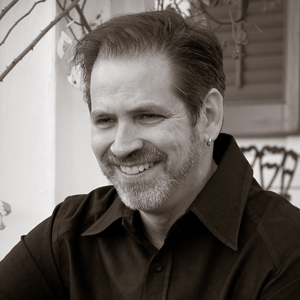When we think of bullying, the aggressive, noisy, overbearing personality comes to mind. While these types certainly make themselves known, (especially during childhood) there is an arguably more dangerous bully that appears in adult situations: the soft-spoken one.
Didn’t see it coming
The adult bully has learned that the physical and verbal abuse they used as a youth often won’t work outside the playground; if they are going to succeed in the big game, they will need more subtle forms of control. Part of the objective is to gain the upper hand before anybody realizes what happened. By then it’s often too late to shut them down.
As I wrote in my previous piece on bullying, it is important to understand the motivations of these individuals in order to avoid getting abused.
- The bottom line is power; this is not the same as respect or honor. They are willing to shed these virtues without hesitation. Because most of us don’t automatically think this way, we don’t know how to anticipate their moves.
- For the bully, winning is more important than the game itself. Sometimes they will see to it that everybody loses, even to their own detriment. Better to lead in Hell than serve in Heaven.
- Appearance is more important than content. This is key; elaborate facades are to be expected.
All the right moves
What we are discussing here is described as “antisocial” behavior; but this is possibly a poor term, because the perpetrators often very nimbly manipulate social interactions. As a matter of fact, they can be quite charming, and will often be the last one standing after a disastrous situation has unfolded. How can we tell when we are being “played?”
- Ever notice subtle slights, insults or other “undermining” tactics that go on for a long time? Sometimes they are purposefully trying to get you angry. When you finally have had enough and confront them, they appear very innocent and shocked. Now you have been labelled “hot-headed” or “over-sensitive.”
- Adult bullies are good at playing a victim; often they set up a situation that makes them look like a martyr. This is the perfect time to establish a new balance of power.
- Unlike children and most adults, who are very obvious and bad liars, these individuals will lie like breathing; the doubt and confusion will create the chaos needed. Worse yet, some people are attracted to the confidence that the bully exudes, despite doubts about their character. Most “normal” people have a hard time imagining this effortless dishonesty until it is too late.
- Bullies will usually have a “sidekick” or follower that can often be manipulated into doing the work. This is typical; there are enough people who want to belong, no matter the cost, that there will always be somebody to play this role. When one person “gets it” and moves on, they are suddenly reviled and then replaced.
- Sometimes a bully’s temporary goals will align with the needs of others; this may make them appear to be helpful, needed, or even to be a “savior.” Once they have established their importance, they can turn on a dime, leaving everybody saying “what happened?”
- The most sincere individuals will often find themselves embroiled with bullies; this is because sensitive and honest people project their values onto others. This is perfectly fine in most situations, but the bully has figured out that we “see the best” in everyone.
While this essay might seem negative and suspicious, the truth is that the vast majority of people are kind and honest, and will often make genuine sacrifices for others. However, it would be naive to pretend that these toxic individuals aren’t out there. Better to be positive, but prepared.
- Beware soft-spoken, but subtly condescending people. This false humility is a sign. (at least in my experience)
- In the opposite case, inappropriate and extreme deferential treatment, flattery and praise.
- Asking you to keep secrets; perhaps seemingly innocent ones.
- When somebody outside your intimate circle needs help a lot, and you are somehow the only one that can fix it, this seems odd.
- Lots of unsolicited advice: we all give out information, and as a teacher, I have that responsibility. However, reaching into your life and diagnosing your issues is another thing entirely. There is something unasked-for that happens.
- People who tell different people different things about a situation; this is a code-red alert. The subtle manipulation of the truth is very dangerous. Behind-the-back words are the most at issue here.
- Acting shocked when you set boundaries; Why should this be a problem?
- Sudden, unexpected flashes of anger. Everybody gets annoyed, but here, there is a different edge. Often there will be an exaggerated apology to follow.
- On first impression, something “isn’t right” with this person; a warning bell is sounding in your intuition.
- Have you found yourself a victim of subtle adult bullying?
- Has a person ever set off a warning bell for you as a toxic person?
- After all was said and done, was the internal warning accurate?


